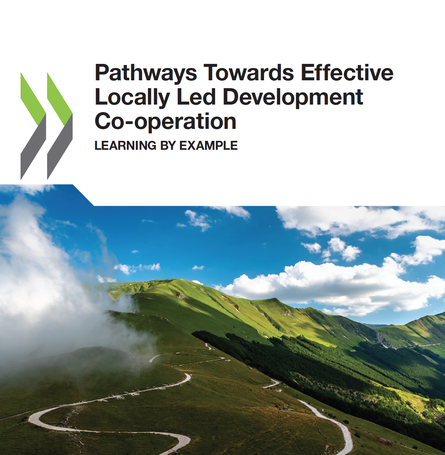
As more providers commit to support locally led development – whereby local actors have agency in framing, design, delivery, learning and accountability – this peer learning synthesis report provides a comprehensive overview of their efforts and strives to develop a common understanding and definition of locally led development co-operation. Building on existing practices, the report analyses to what extent providers’ systems can enhance or hinder the agency of local actors, looking in particular at policies, financing mechanisms, partnerships, and management processes. Rather than prescribing a singular pathway, it emphasises the importance of context-specific, sequenced, and locally defined approaches.
Pathways Towards Effective Locally Led Development Co-operation: Learning by Example is a useful read for policymakers, practitioners and anyone committed to more equitable and effective development co-operation.
This peer learning synthesis report aims to help DAC members promote more effective locally led development co-operation by collating new and existing good practices. It identifies several enablers, for which it provides an overview of contextual influences and challenges, and highlights good practices.
- Establishing policy and institutional frameworks with clear definitions and expectations.
- Strengthening financing mechanisms.
- Promoting collaboration and equitable partnership mechanisms.
- Adapting management processes and delivery practices.
- Measuring progress and providing a layered measurement framework.
This report emphasises the importance of context-specific, sequenced, and locally defined approaches for DAC members, rather than prescribing a singular pathway. It underscores the need for systemic change, acknowledging that this transformation will take time. The report highlights the significance of starting with policy and institutional frameworks: these first steps will facilitate shifts in funding and partnership mechanisms, allowing new modalities for diverse actors to collaborate equitably. This approach can then support management practices centred on agency, knowledge, and collective accountability. Each DAC member's unique starting point necessitates tailored sequencing, recognising the time required to make progress.
Systemic change takes time. Achieving successful locally led development co-operation requires building on existing good practices of DAC members, which are not always labelled as such. Concurrently, it demands broader systemic changes, requiring sustained political will and a co-ordinated approach built on shared definitions and understandings from peer learning. Negotiating diverse priorities among local and international actors coming from different perspectives, and implementing changes in policies, mechanisms, and practices are essential to shifting power dynamics and behaviours.